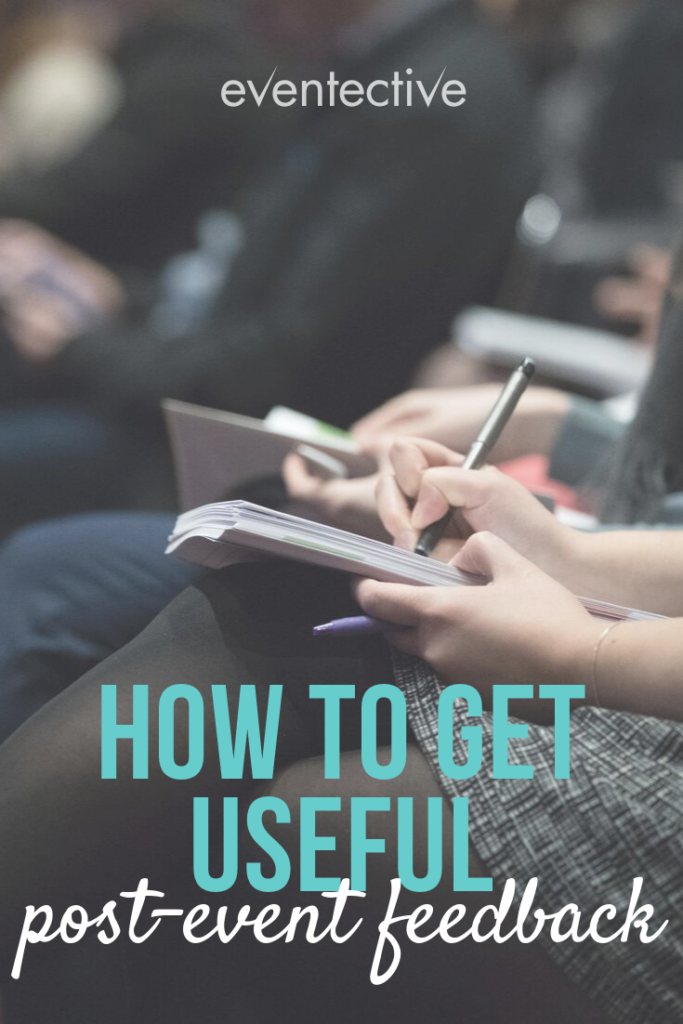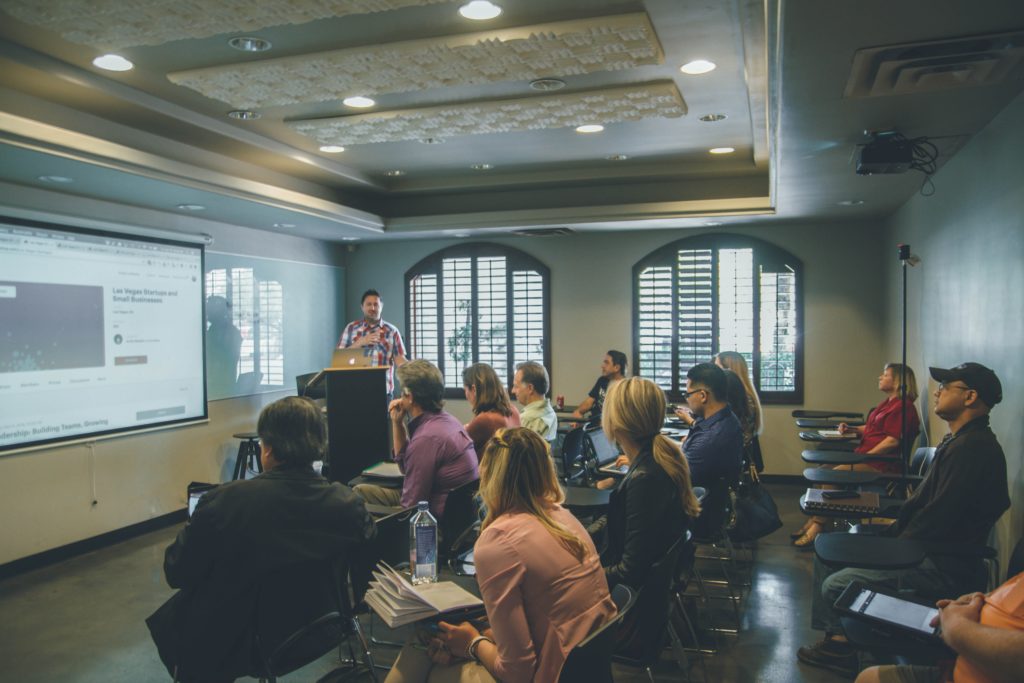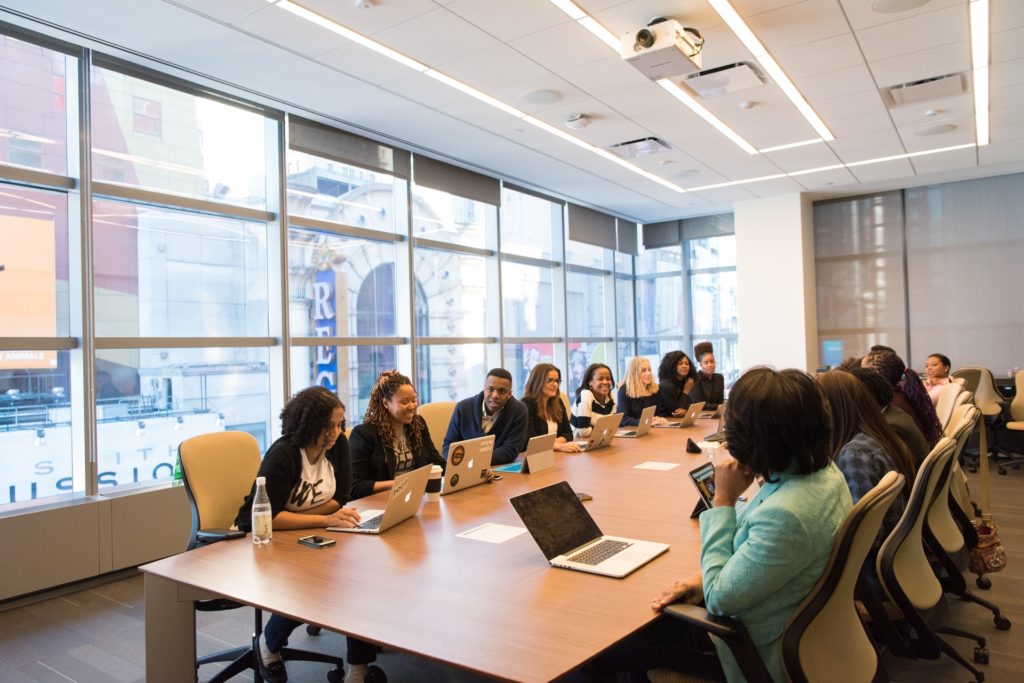
Getting through your event without a hitch—or sometimes with a hitch or two!—is a big milestone, and you should feel accomplished. But it’s not the final step in event planning, especially if you plan on hosting more events in the future. Gathering post-event feedback is one of the critical last steps before it can really be over.
Event feedback gives you two important pieces of data. First, it tells you whether your event was successful or not. Your definition of success might differ from others in your industry—and that’s OK! But you still need to define success during the planning stages. Otherwise, you won’t have anything to compare the post-event feedback against.

Second, feedback tells you what to adjust for future events. Maybe your definition of success wasn’t as accurate as you thought, so you redefine going forward. Or the feedback could confirm your definition is accurate, but you need to change a few details to really hit the mark. Post-event feedback can give you all this information!
In order to get accurate and useful post-event feedback, you need to ask the right questions to the right people. We cover the four main audience groups below—but keep in mind that not all groups are relevant for every event. Focus on getting feedback from those involved in your event, and don’t worry if you’re “missing” a group on this list.
Attendees
Attendees are the most important audience group. While every event’s definition of success is different, most of those definitions involve the experiences or takeaways of your attendees. You always want their feedback—and a follow-up survey is a great way to get it.
Bonus Tip: Add a thank you page at the end of your survey with downloads, upcoming events, and relevant news.
Post-event feedback will confirm (or deny) that your goals lined up with the attendee’s experience. The survey is also a great way to reinforce any talking points and advertise future events.
When to Ask

For attendee feedback, always ask promptly. If appropriate, request attendee feedback during the event. You can provide paper questionnaires on tables, or have employees on the floor informally interviewing guests. If you create a digital survey, provide the link during the event, or tablets for attendees to fill out before leaving. Don’t wait more than 24 hours post-event to send surveys.
Sample Questions:
- What did you like most / least about the event?
- How likely are you to attend an event in the future?
- Do you think the event met its objective?
Speakers or Presenters
If you had a keynote speaker or a group of presenters, their feedback is also important. By opening up the discussion, you are building a relationship with key players in your industry, instead of simply exchanging services. Over time, these contacts turn into a robust network. Plus, their post-event feedback can improve future partnerships with other keynotes, reinforcing your professionalism and encouraging collaboration.
When to Ask

If you only have a single speaker or a few presenters, schedule individual debriefs with each stakeholder a day or two after the event.
Bonus Tip: Don’t do all the talking at the debrief; have initial attendee feedback ready to share with the presenter.
Incorporating post-event feedback into the whole process gives proper closure, and time to think through answers. Send some sample questions in advance so they come prepared to the debrief.
Sample Questions:
- Did the structure of the event allow you to properly interact with the attendees?
- Were you able to cover the topic(s) thoroughly?
- Was the audience size and demographic in-line with your message?
Exhibitors and Sponsors
Tradeshows and conferences look a little different than your run-of-the-mill speaking engagement or networking event. Just like your attendees, your exhibitors and sponsors need to have a positive experience, too. Otherwise, they might not attend future events. Asking for their feedback ensures that they continue to find value with your partnership. Plus, you can compare their responses to the attendee input and make sure everyone agrees on the key points.
When to Ask

Like every other group, you want to send the survey sooner rather than later, while the event is fresh on their minds. For smaller events, consider calling each exhibitor or sponsor to ask for permission to send the survey. For large gatherings, post-event feedback will likely be expected, and you should send it within 24 hours of the event’s last day.
Sample Questions:
- Were the right decision-makers at the event?
- Was there adequate signage and publicity for your organization?
- Were you able to access the event location easily?
Employees
Did you have a team coordinating the event, or any employees on-site to handle any attendee requests or problems? Get the group together after the event to discuss their overall impressions. Every event starts with well-coordinated staff, and you can easily set yourself up for success—or failure—before the event even starts. Consider the planning process, any company communication, and event execution. Establishing the weak spots in your marketing efforts or internal communication will make future events run more successfully.
When to Ask

Let your employees know you will be conducting surveys before the event. This gives them time to analyze it live, and craft specific points of feedback. Send the survey out immediately after the event, but also schedule a group meeting to discuss the feedback collectively.
Sample Questions:
- How was pre-event communication within the company?
- Were any on-site needs not met?
- What feedback did you hear from the floor?
Conclusion
Each audience group can provide valuable insight for your past and future events. And while they all need different questions and survey methods, there are some universal tips for collecting post-event feedback. Keep your surveys shorter than 10 questions, and use open-ended questions sparingly—only one or two at the end, if you must. Make sure any digital surveys are mobile-friendly, and expect most of your responses within the first seven days.
Have you ever filled out a post-event survey? Why or why not?

